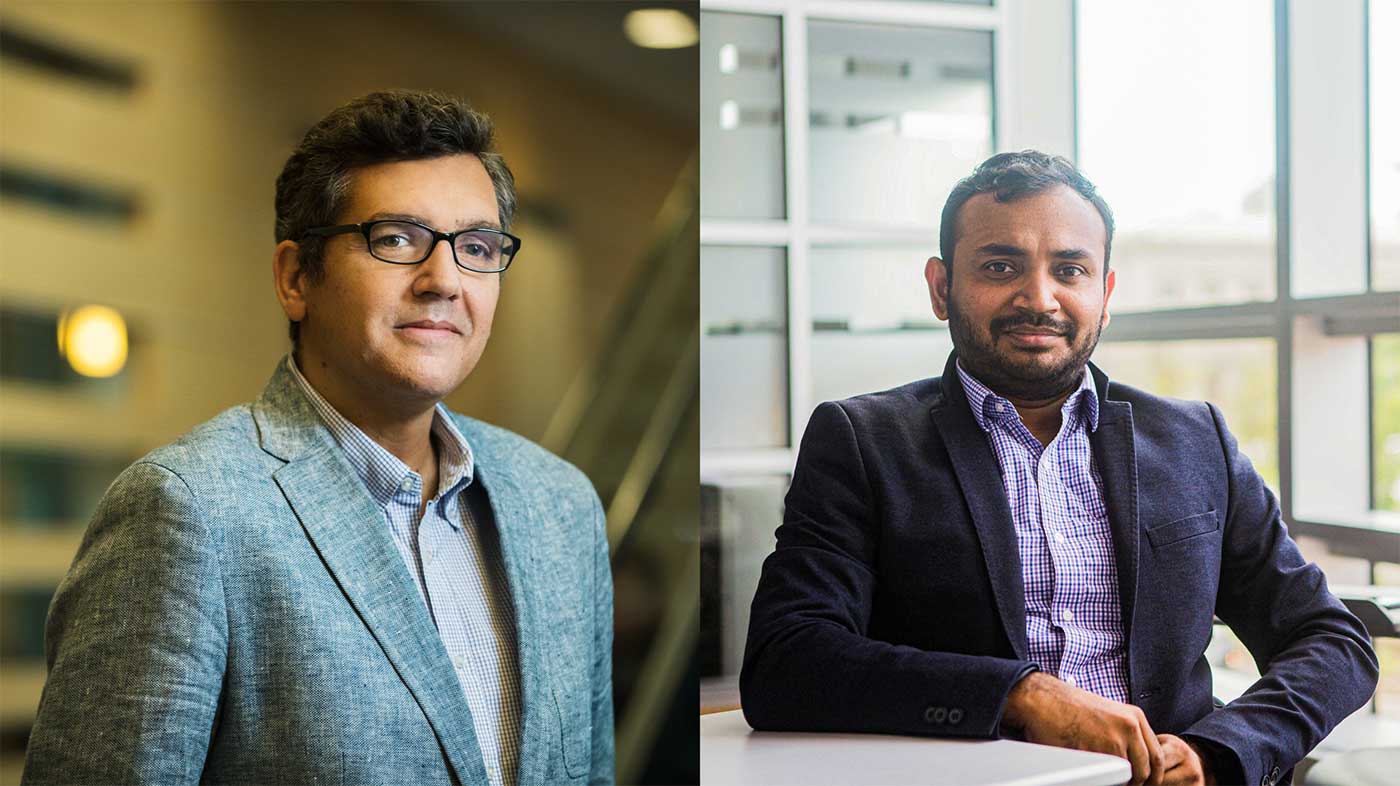As cyber attacks surge, the Defense Department turns to universities for cybersecurity grads
Author: Milton Posner
Date: 04.24.23

In recent years, sectors all across the American economy have been calling for computer science graduates to join their ranks.
But the cybersecurity sector isn’t just calling. It’s howling.
As cyber attacks leave the United States, its businesses, and its people increasingly vulnerable to data breaches, ransomware, and IP theft, the country’s need for cybersecurity workers is dwarfing its talent pool. In 2022, the US cybersecurity workforce grew by five percent, but the gap between supply and demand swelled by nine percent; an estimated 410,000 cybersecurity jobs remain unfilled. If the pipeline doesn’t expand dramatically and soon, the gap could persist for a generation.
To better defend against cyber attacks and weapons that use the electromagnetic spectrum (EMS), the Department of Defense (DoD) has partnered with 19 universities, the Air Force Research Laboratory, and the STEM-talent-and-defense-tech accelerator Griffiss Institute to train the coming generation of cybersecurity experts. The result is the VICEROY program (Virtual Institutes for Cyber and Electromagnetic Spectrum Research and Employ), which groups its university partners into six virtual institutes; each institute is awarded $1.5 million over two years to boost their cybersecurity, EMS, cryptography, and data science offerings in line with DoD workforce needs.
The Northeastern-led virtual institute, dubbed VICEROY DECREE (DoD Electromagnetic and Cyber Research and Experiential Education), also includes Northern Arizona University, the University of Houston, and the University of South Carolina. About 25 students from the four universities have joined the program; the eventual target is 60. The Khoury College faculty driving the program are leveraging Northeastern’s experiential learning focus to offer Northeastern’s VICEROY DECREE students exclusive co-op and research opportunities.
“The same problems industry has are even bigger for the DoD, so the program is geared toward DoD and defense industry jobs,” says Jose Sierra, principal investigator for VICEROY DECREE and associate director of Khoury College’s information assurance and cybersecurity program. “VICEROY DECREE takes students who are interested in cyber and gives them the skills and knowledge they need. They can specialize and get advanced skills that they wouldn’t have without the program.”
“It’s supposed to be a virtual institute, so you can be at any of the partner institutes and still take classes from the other universities remotely,” adds Aanjhan Ranganathan, VICEROY DECREE’s co-principal investigator and a Khoury College professor specializing in EMS-related cybersecurity. “Another differentiating aspect is the addition of the non-technical focus, including courses like Chinese and Arabic. It’s a holistic education.”
Both researchers note demand for versatile cybersecurity graduates is soaring. Sierra is troubled by the growing volume and scope of cyber attacks against companies, and by malicious actors targeting vulnerable institutions like hospitals that they previously didn’t think to prey upon. Ranganathan points out that many of the targeted systems were designed for functionality, not defensibility, and that retrofitting these systems to be secure requires even greater intervention from cyber professionals.
But the rise in attacks alone doesn’t account for the workforce gap.
“Cybersecurity is a relatively new field, especially in terms of system security and of treating cybersecurity as a profession,” Ranganathan says. “It’s also an interdisciplinary profession. You’ll need your computer science background, but if you want to work with security and privacy in medical data, wireless systems, robots — you’ll need domain knowledge.”
Northeastern is among the pioneers of a small number of interdisciplinary cybersecurity programs nationwide, and because they’ve all ramped up recently, there are only so many cybersecurity graduates in circulation. But the pipeline is poised to grow, and VICEROY DECREE’s captains want everyone to know it.
Enter the first VICEROY DECREE Annual Symposium, an all-day, hybrid event held on February 9 and 10 which primarily targeted CS students and defense industry professionals.
“There was the networking part: bringing Northeastern students together with students from Houston, Northern Arizona, South Carolina,” Sierra says. “Students could share their research and course projects, which helped to link the institutions together.”
Symposium students participated in a cyber pitch competition, where they proposed solutions for cybersecurity-related challenges. The event also featured master classes, panels, and presentations on topics ranging from Google data centers and autonomous machines to post-quantum cryptography and defense-related cybersecurity challenges. Speakers included industry researchers, Army and Air Force officers, and faculty from all four universities, including Sierra and Ranganathan.
“By inviting industry and DoD folks into the symposium and making them aware of the VICEROY DECREE program, we can help students to be recruited when they come out of the program,” Ranganathan explains. “Industry folks can see there’s a specialized EMS and cybersecurity program from a top cybersecurity research university like Northeastern, so you start to build a pipeline for students to be hired after graduating.”
To read about those students and their experiences in VICEROY DECREE, click here for part two.
Subscribe to Khoury News
The Khoury Network: Be in the know
Subscribe now to our monthly newsletter for the latest stories and achievements of our students and faculty